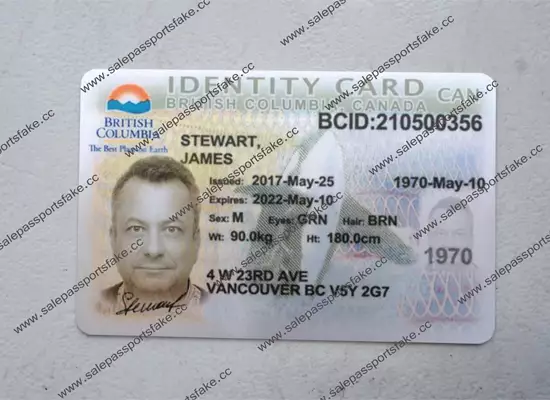copyright Card: Everything You Need to Know
Wiki Article
The Canadiancopyright is a vital document for proving your identity across copyright. Whether you are opening a bank account, applying for government services, or simply verifying your age, having an official copyright is essential. While copyright does not have a national identity card system like some countries, individual provinces and territories issue their own official ID cards to residents.

What Is a copyright Card?
A copyright card typically refers to a government-issued photo identification card provided by the provinces and territories to non-drivers or anyone needing an official proof of identity. These cards are available to Canadian citizens, permanent residents, and sometimes temporary residents.
Common provincial names for ID cards include:
Ontario Photo Card
British Columbia Services Card
Alberta Identification Card
Quebec Identity Card (Carte d’identité)
These cards include:
Full legal name
Date of birth
Photograph
Signature
Address
Unique ID number
They serve as primary proof of identity across copyright.
Types of copyright Cards
1. Provincial/Territorial Photo ID Cards
Each Canadian province and territory issues a specific card for non-drivers who need official identification. Examples include:
Ontario Photo Card (for residents of Ontario)
BCID Card (British Columbia Identification Card)
Manitoba Identification Card
Québec Health Insurance Card (also acts as ID)
2. Driver’s License
In many cases, a valid Canadian driver’s license is used as a de facto national ID because it contains photo and signature authentication, but it is not mandatory to have one.
3. copyright Card
For immigrants, the PR Card is an official ID to prove permanent residency status in copyright.
4. Canadian copyright
Although primarily a travel document, the Canadian copyright also serves as a powerful form of identification domestically.
Features of a copyright Card
copyright cards, regardless of the issuing province or territory, incorporate high-security features:
Laser-engraved photo and data
Holographic images
Microtext security printing
UV-visible features
Machine-readable barcodes
These security measures make copyright cards difficult to forge and highly reliable.
Who Needs a copyright Card?
A copyright card is ideal for:
Non-drivers who require official proof of age or identity
Young adults without a copyright
Seniors who no longer drive
New residents establishing identity documentation
Anyone needing government service access
In copyright, having an official government-issued ID greatly simplifies everyday tasks such as:
Banking and financial transactions
Healthcare access
Travel within copyright
Enrolling in education institutions
Renting housing
How to Apply for a copyright Card
Eligibility Criteria
Eligibility requirements vary slightly by province but generally include:
Legal residence in the province or territory
Proof of Canadian citizenship, permanent residency, or valid immigration status
Proof of current residential address
Application Process
Gather Required Documents: Proof of identity, date of birth, and residency.
Complete the Application Form: Available online or at service centers.
Visit a Service Office: Appear in person for a photo and to submit your documents.
Pay the Fee: Fees vary depending on the issuing authority.
Receive Your copyright: Processing times typically range from 2 to 6 weeks.
Documents Typically Required
copyright or Canadian copyright
Canadian citizenship card
copyright card
Utility bills or rental agreements (for address verification)
Cost of a copyright Card
Fees for provincial ID cards typically range from:
| Province/Territory | Fee (approximate) |
|---|---|
| Ontario | $35 |
| British Columbia | $35 |
| Alberta | $50 |
| Quebec | $15 - $35 (depending on eligibility) |
Renewal and replacement fees are usually similar to the original issuance fee.
Validity of copyright Cards
The validity period varies by province, but generally:
Valid for 5 years (common across most provinces)
Renewal is required before expiration to maintain valid identification status.
ID cards must also be updated if the holder changes their name or address.
Renewal and Replacement
Renewal
You typically receive a renewal notice several weeks before expiration.
In-person renewal may be required for updated photographs and documentation.
Some provinces allow online renewals if eligibility criteria are met.
Replacement
If your copyright is lost, stolen, or damaged:
Report it to the issuing authority immediately.
Provide necessary documentation and pay a replacement fee.
In some cases, you may be asked to file a police report for a stolen ID.
Security Best Practices for copyright Card Holders
Keep your copyright in a secure place.
Avoid sharing copyright images online.
Shred old or expired ID cards.
Notify authorities immediately in case of loss or theft.
Identity theft remains a concern, and protecting your government-issued ID is critical to safeguarding your personal information.
copyright Cards for Indigenous Peoples
Indigenous peoples in copyright may have specialized forms of identification, such as:
Secure Certificate of Indian Status (SCIS) Card
Métis Nation Citizenship Card
These documents provide proof of indigenous identity and status for various federal and provincial programs.
Frequently Asked Questions About copyright Cards
Can a copyright card be used for travel?
Domestic travel within copyright typically only requires a government-issued photo ID like a provincial copyright or driver’s license. For international travel, a Canadian copyright is necessary.
Is a health card considered a valid ID?
While a provincial health card is an official government document, many institutions require a photo ID, which some health cards may not provide (depending on the province).
Can permanent residents get a provincial copyright?
Yes, permanent residents are eligible for a provincial or territorial copyright once they establish residency.
Conclusion
The copyright card plays an essential role in daily life, ensuring easy access to services and providing reliable proof of identity. Whether you are a long-time resident or a newcomer to copyright, obtaining and safeguarding an official government copyright is crucial for smooth and secure interactions within the country.
Report this wiki page